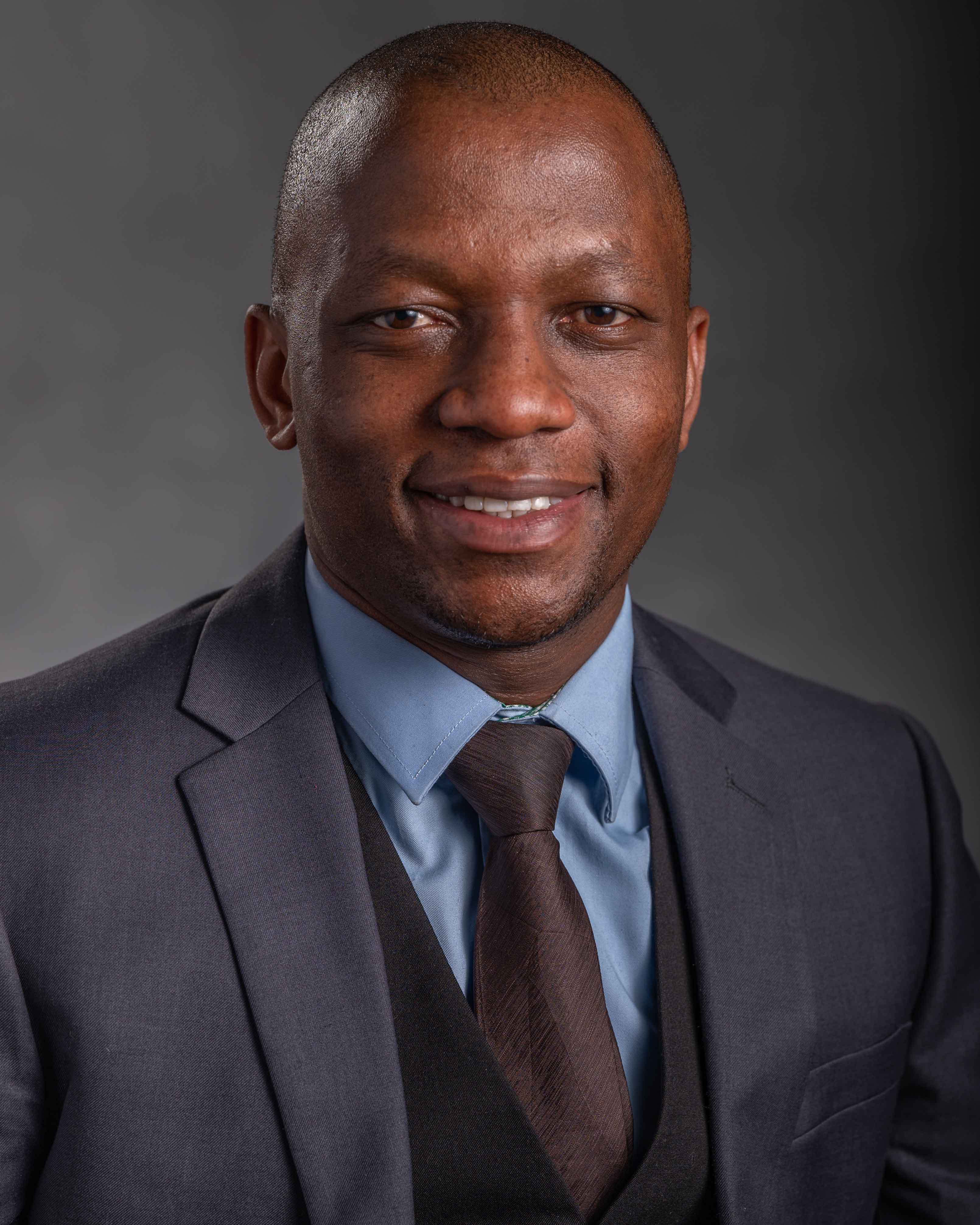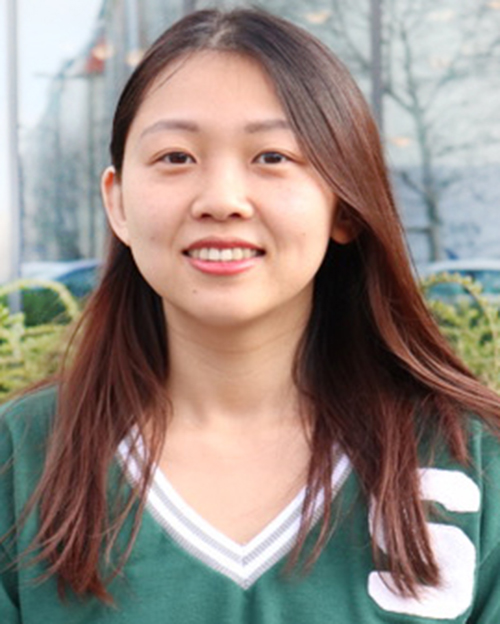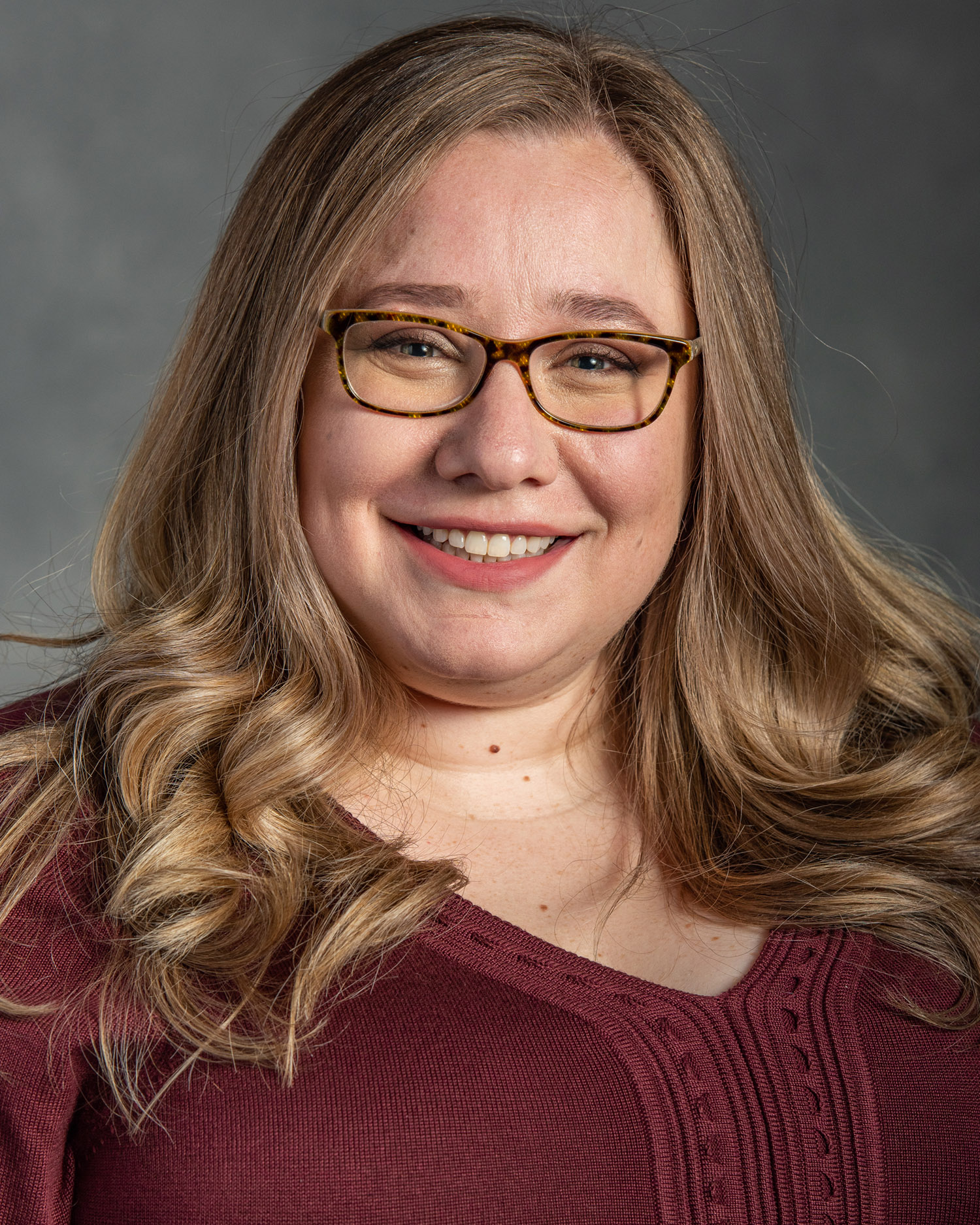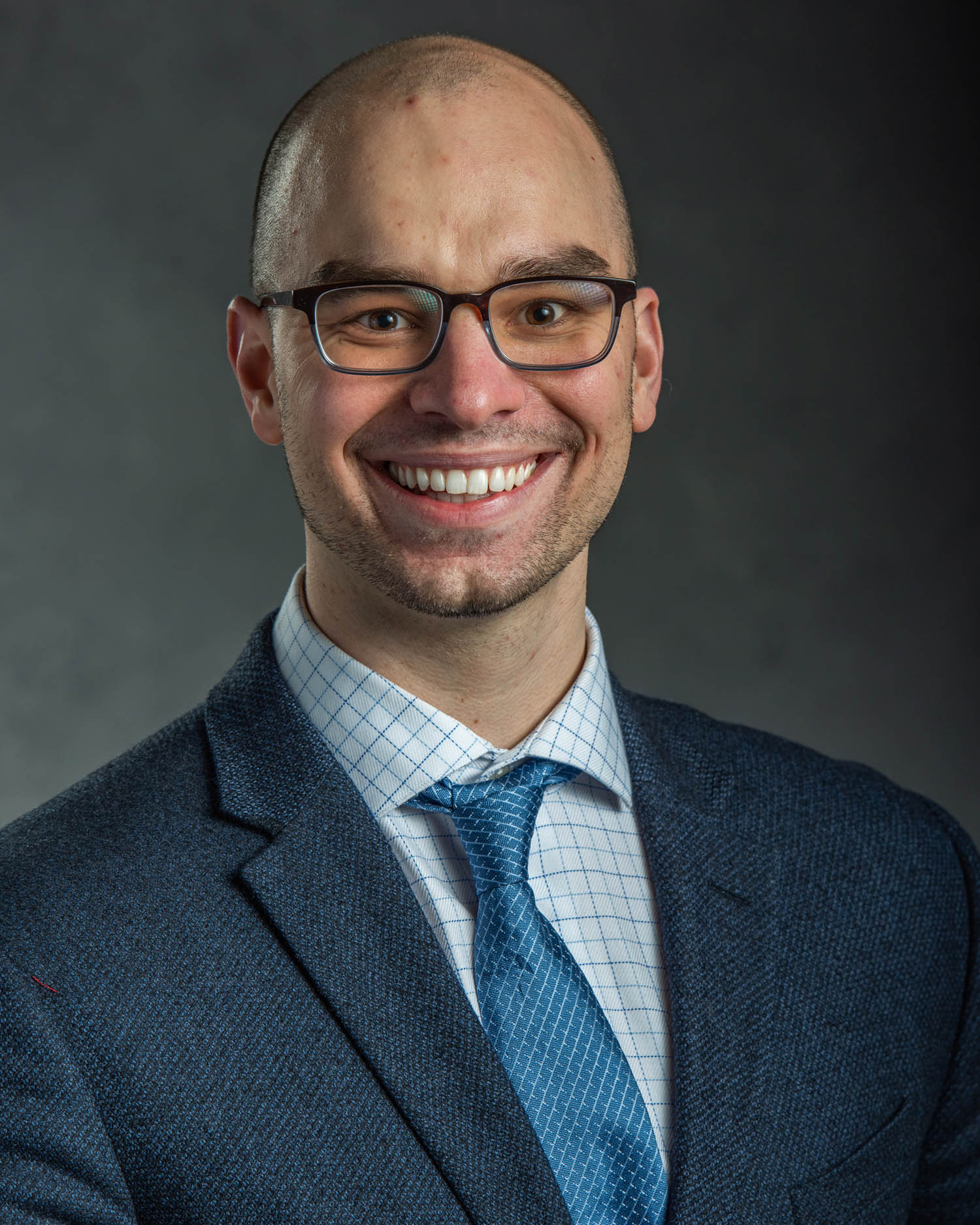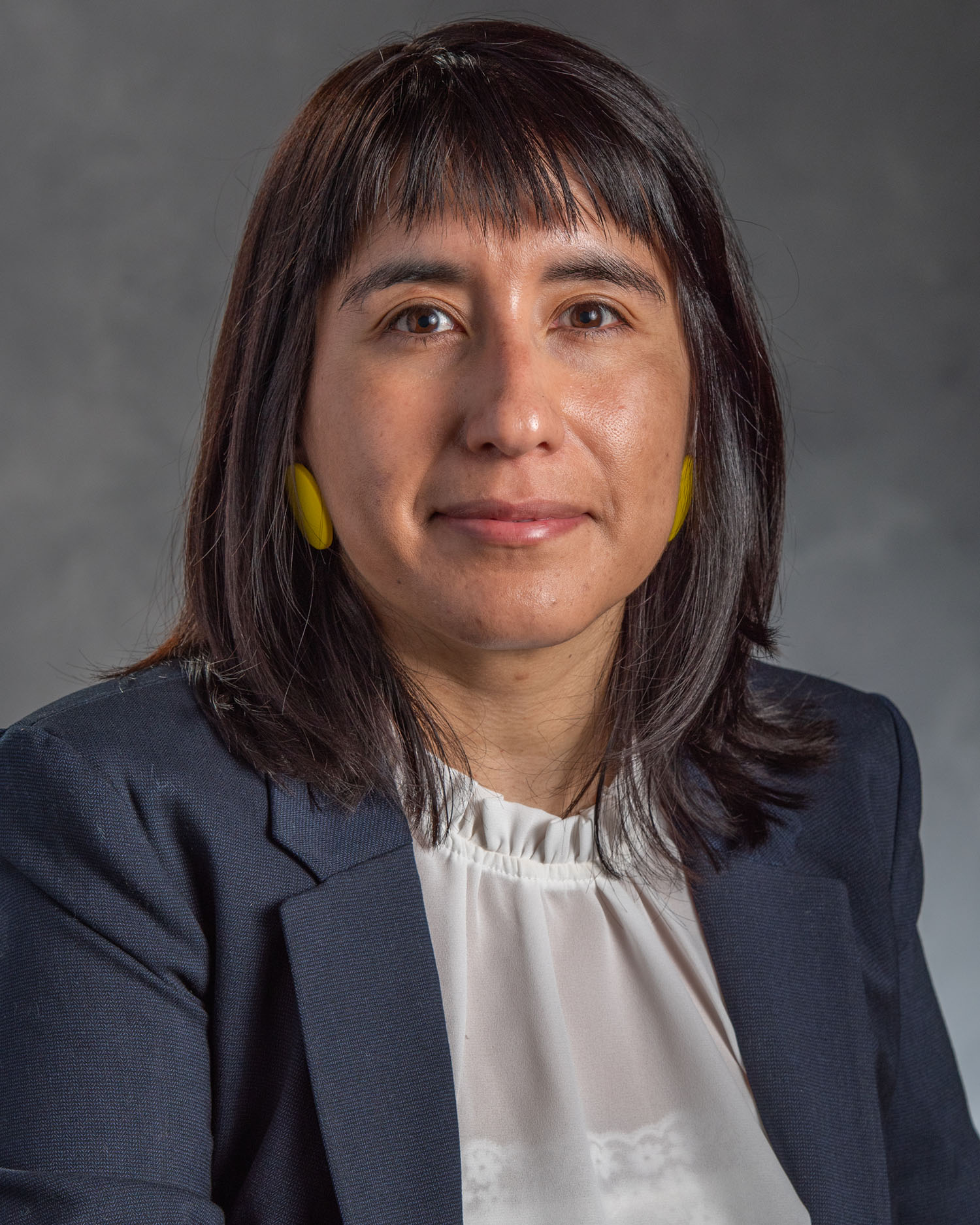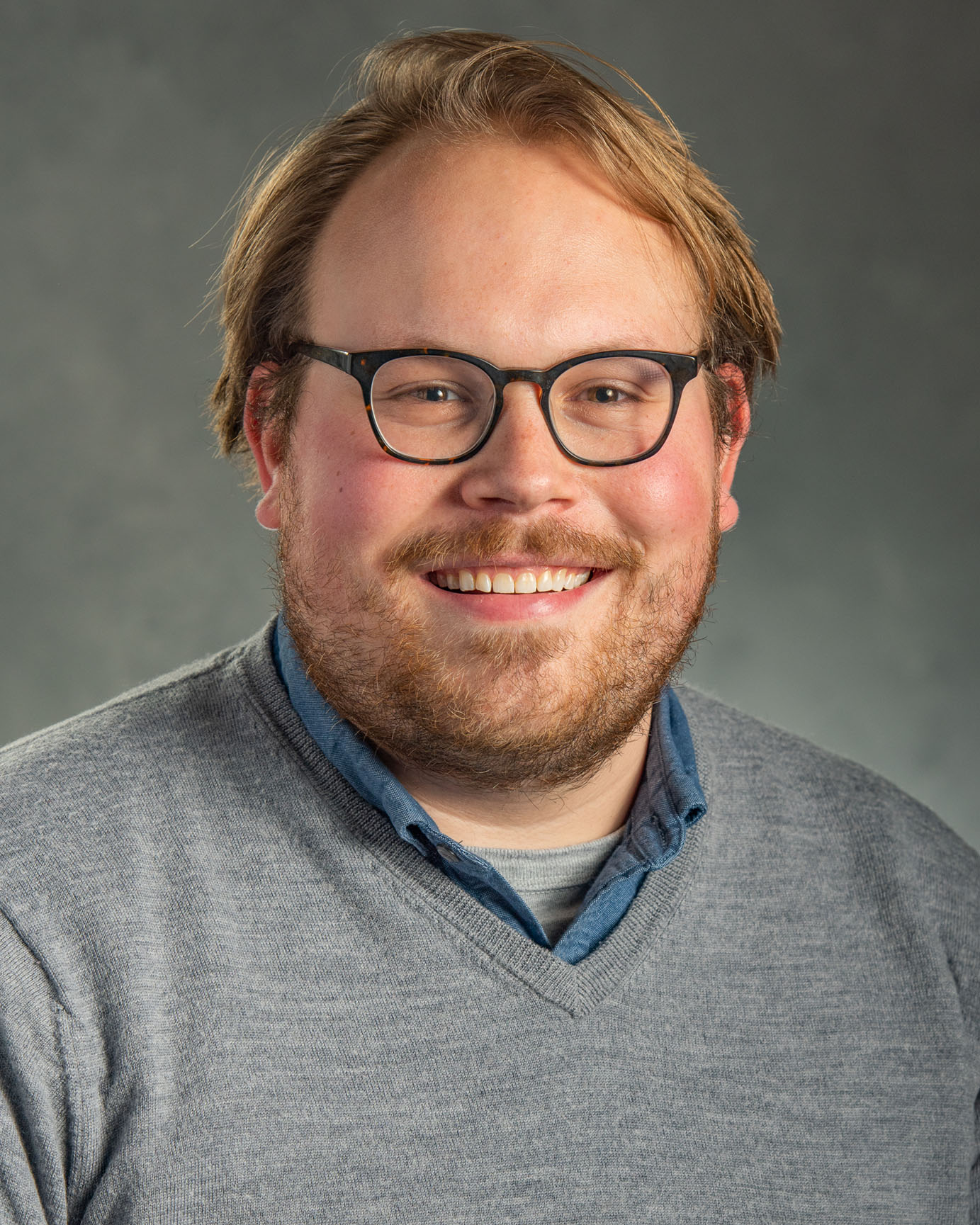Excellence-in-Teaching Citations
Ronald Asiimwe
Department of Human Development and Family Studies
College of Social Science
Ronald Asiimwe is one of the top graduate teachers in MSU’s Department of Human Development and Family Studies. Recognizing the profound impact mentors and instructors have had on his own professional development, he applies the lessons he has learned with his own students. Accordingly, he is continually enthusiastic about and committed to teaching and mentoring the next generation of students in the social sciences.
Consistent with a developmental model of learning, Asiimwe aims at creating a safe, supportive, and inclusive learning environment to help all of his students learn and grow. He makes the classroom a place of inquiry, challenge, intellectual stimulation, open discussion, and growth by creating class activities and assignments that encourage in-depth analysis and co-creation of learned materials through student discussions, online posts, and debates.
One innovative technique he uses to foster this environment is including an “Instructor Positionality Statement” in his syllabus, which stresses his values and commitment to teaching, diversity, and respect for students’ individuality and personal growth. Asiimwe’s class is organized to ensure student success: important information on assignments, expectations, and evaluationsare highlighted throughout the syllabus; assignments are designed with detailed instructions, resources, and suggestions and accompanied by clear rubrics that are separated into meaningful categories with details and examples.
As noted by one of his faculty mentors, “Asiimwe cares about his craft, working and evolving within it. He is devoted to the subject matter, believing what he is conveying makes a difference in the lives of students and actively works to build a classroom environment that is safe, inclusive and reflexive.”
Asiimwe is a productive scholar and is developing an independent line of scholarly research on the cultural translation of evidence-based parenting interventions. He is also interested in scholarship on child mental health outcomes and systemic family therapy in Africa. Asiimwe has published several first-author papers in leading journals in his field, including the American Association for Marriage and Family Therapy and Journal of Adolescence, as well as numerous papers as a co-author.
For embracing so many positive practices in his teaching and scholarship, Ronald Asiimwe is truly deserving of a Michigan State University Excellence-in-Teaching Citation.
Tianyi Kou-Herrema
Department of Linguistics, Languages, and Cultures
College of Arts and Letters
Tianyi “Titi” Kou-Herrema’s enthusiasm for teaching originates in her love and passion for languages and cultures. As a non-native speaker of the two languages she works with on a daily basis, German and English, she understands and empathizes with the challenges her students face in learning a new language. Recognizing her own situation between German, English and Chinese, she brings a fresh cultural perspective to classroom discussions that not only encourages international students to speak up and help cultivate open-mindedness within the entire class, but also inspires all learners to approach everyday topics from a global perspective.
Kou-Herrema’s dedication to maintaining students’ education and their mental/emotional health during what were exceptionally difficult years in 2020 and 2021 was strongly appreciated by her students. One student wrote, “Her classroom space was one of collaboration, community, at times comedy, but above all, confidence; her influence on me will last a lifetime.”
A doctoral candidate in German Studies, Kou-Herrema’s research builds on the interdisciplinary intersection of sports studies, critical theory, and digital humanities. In 2019, she was awarded the DAAD (Deutscher Akademischer Austauschdienst) Alumni Scholarship from the German Academic Exchange Service for her participation in the European Summer University in Digital Humanities, “Culture and Technology.” Later, she presented one of her digital projects, “The Multicultural Men’s National Football Team,” at the First Academic Alumni Forum at Leipzig University. She has presented numerous conference papers, nationally and internationally, and participated in numerous professional and digital training projects. She was named Outstanding Teaching Assistant in the Department of Linguistics, Languages and Culture in April 2021, and was the Winner of Seasons of GRADitude in MSU’s Graduate School in December 2020.
In addition to serving the outreach and research committees in Digital Humanities at MSU, Kou-Herrema is also part of the Graduate Teaching Assistant Advisory Group at the Graduate School, which designed and led the Graduate Assistant Preparation Program 2021.
For her phenomenal teaching, her commitment to fostering an inclusive and open learning community, and her passion for training and education of other teaching assistants, Tianyi Kou-Herrema is most deserving of the Michigan State University Excellence-In-Teaching Citation.
Caryn Herring
Department of Communicative Sciences and Disorders
College of Communication Arts and Sciences
Caryn Herring embodies what it means to be a scientific practitioner and educator in the field of speech-language pathology. Successfully preparing students in this field requires that instructors encourage the development of both critical thinking and clinical thinking skills, in addition to extensive content knowledge. A caring and effective clinician, Herring excels in providing this type of education. She has the scientific background necessary to ensure that her teaching is evidence-based, empathic, and compassionate — and helps students discover the best in themselves as they develop their academic and clinical skills.
Herring is particularly known for her ability to create a safe and supportive environment in the classroom, one in which students thrive as they learn to take risks and expand their clinical comfort zones. As one student stated, “Herring’s teaching elicits an openness in her students. She creates a space in which students are…unafraid to try new treatment strategies…or pose unasked questions.” This theme resonates throughout the responses of her students, “She always made it clear that her classroom was a welcoming environment … Herring’s passion for teaching and love for communicative sciences and disorders is evident through her manner, connection with students, and presentation of materials.”
Herring’s research focuses on the field of fluency disorders, specifically stuttering. Her work addresses fundamental questions about the treatment of people who stutter, including questions on whether summer camp programs for children who stutter result in tangible benefits for participants (they do) and whether commonly used but poorly studied treatment strategies result in improvements in quality of life (results forthcoming). She has co-authored several peer-reviewed and invited papers, and given numerous invited and submitted presentations and posters; she is also a much sought-after presenter and guest lecturer. The International Fluency Association and International Stuttering Association has recognized her scholarly promise with a professional development award.
Through her numerous contributions to teaching, clinical practice, and research, Caryn Herring has made an indelible mark on the lives of students and countless people who stutter around the world and is most deserving of a Michigan State University Excellence-in-Teaching Citation.
Eric Leszczynski
Department of Kinesiology
College of Education
Eric Leszczynski is the embodiment of what it means to be a Spartan, a symbol of excellence, innovation, and service to one’s community. His teaching philosophy centers on establishing a contract of understanding and mutual respect with his students that allows them to not only develop enthusiasm for the course material but also greater understanding of it and greater career preparedness.
Leszczynski has taught several of the core requirements in the kinesiology department, including “Foundations of Kinesiology,” “Applied Human Anatomy,” and the “Human Anatomy Lab.” These classes are central to preparing students for future work in fitness/clinical settings as well as graduate study in kinesiology, physical therapy, physician’s assistant programs and nursing programs. Leszczynski’s success as the lead instructor in “Applied Human Anatomy” led to his selection as lead instructor for the “Exercise Physiology Lab” and, ultimately, “Physiological Bases of Physical Activity”; both of these upper-level courses require recognized leadership in the classroom because of their centrality to the kinesiology curriculum.
Leszczynski has mentored multiple undergraduate students in research, which led to one winning an outstanding presentation at the University UndergraduateResearch and Arts Forum. One of his students describes him as “a committed mentor ... concerned with [student] learning and the development of research skills.” Another credits him with “having a significant impact on her education, both in and outside of the classroom.”
Leszczynski is a dedicated scholar whose research focuses on the mechanisms by which early life growth restriction influences physical activity and wellbeing in adulthood. Because physical activity can mitigate chronic disease development, and it has been demonstrated that growth-restricted individuals engage in less physical activity throughout life, it is crucial to develop evidenced-based therapeutic countermeasures for this population. He has already made substantial contributions to the scientific field. He has co-authored peer-reviewed publications in Medicine and Science in Sports and Exercise, Applied Physiology Nutrition and Metabolism, and Nature.
For his exemplary contributions to quality teaching and exceptional scholarship, Eric Leszczynski is most deserving of the Michigan State University Excellence-In-Teaching Citation.
Romina Peña-Pincheira
Department of Teacher Education
College of Education
Romina Peña-Pincheira is a dedicated doctoral student who takes great pride in connecting her research to her teaching and has helped MSU students learn from her expertise, global perspective, and understanding of different subfields of language education. She has a strong background in TESOL and World Language Education, having taught English and Spanish in K-12 and higher education settings in the United States and Chile. Consequently, she helps prepare educators who can elevate the voices of linguistically and culturally minoritized students and leverage their multilingual repertoires and diverse backgrounds by enacting humanizing pedagogy, engaging students in critical thinking, and helping them expand their views on multilingualism.
Peña-Pincheira has taught 11 different courses in the five years since beginning her doctoral program. These courses range from first-year undergraduate classes on the social foundations of equity and justice in education to senior-level courses on world language teaching methods to master’s-level courses that support student interns in their classroom practice. She has collaborated with faculty in the visioning and enactment of a new course series in the Teacher Education program’s Global Educators Cohort Program, which prepares future educators toapproach their teaching from a global social justice perspective.
Peña-Pincheira’s dissertation research reflects her work with teachers and students to understand what justice-oriented teaching in English as a Foreign Language classroom can look like. Her research is poised to offer new, critical, and compelling ways to push beyond the rhetoric of English as a form of capital or a gatekeeping language. She argues for a decolonial, intercultural, and critical EFL classroom that builds upon students’ inherent commitments to sociopolitical activism and provides a rich exploration of the social justice possibilities of language education classrooms.
Peña-Pincheira’s service to the university shows through her collaborative spirit. Committed to “paying it forward” in powerful ways, she has frequently served as a mentor for graduate and undergraduate students, helping them navigate the complex world of academia.
For her skill and dedication as a teacher and her promise as a scholar, Romina Peña-Pincheira is a most deserving recipient of the Michigan State University Excellence-in-Teaching Citation.
Nicholas Rekuski
Department of Mathematics
College of Natural Science
Nicholas Rekuski is an outstanding teacher dedicated to improving undergraduate mathematics education, putting student engagement at the forefront of his teaching to create inclusive, engaging experiences. His classes are filled with self-discovery activities that are inspired by real-life applications in mathematics. He aims to relate to his students from all backgrounds, promoting an inclusive environment where students can make mistakes and learn without judgement.
To help make math relevant for students in his “Quantitative Literacy I (Including Applications to Health and Risk)” class, for example, Rekuski created many of the class recitation materials, including a lab on calculating the probability of pregnancy with certain contraceptive methods and then interpreting medical test results. Such activities allowed students to use their mathematical skills in their own life experiences, making it instantly relevant for them.
Rekuski has been a key contributor to department curriculum development, far beyond what is expected or generally accomplished by teaching assistants. In addition to his contributions in the development of the “Quantitative Literacy” courses, he developed materials for “Transitions: Introduction to Mathematical Reasoning” — the first upper-division course for math majors and a critical bridge toadvanced mathematics study — including group work-based lessons and original homework sets. His most recent contribution to this class was the development of lecture videos to help the transition to online teaching.
Outside the classroom, Rekuski has been a valuable leader in the mathematics teaching community. He has mentored novice instructors, working closely with the Center for Instructional Mentoring to provide instructional support for new math teachers; supervised the Math Learning Center; coordinated grading sessions; and led large exam review sessions.
Rekuski is an excellent researcher who explores algebraic geometry, using tools from abstract algebra to understand solutions to polynomial equations, focusing specifically on understanding vector bundles in solutions to polynomials. Broadly, this has important applications in physics, cryptography, and machine vision.
For his exemplary teaching and commitment to math pedagogy as well as his excellent and broad-reaching research, Nicholas Rekuski is highly deserving of the Michigan State University Excellence-In-Teaching Citation.
